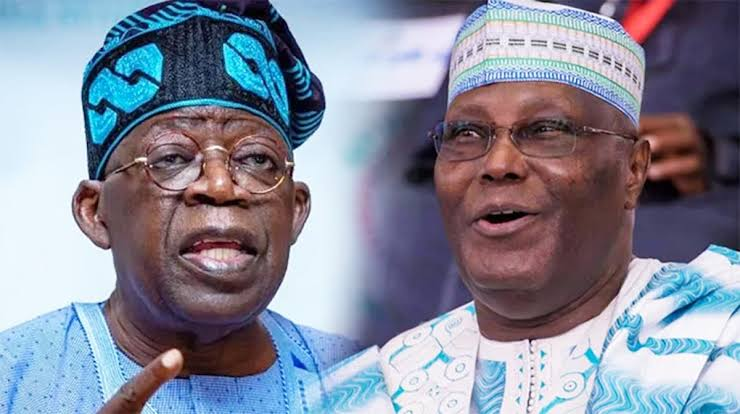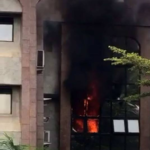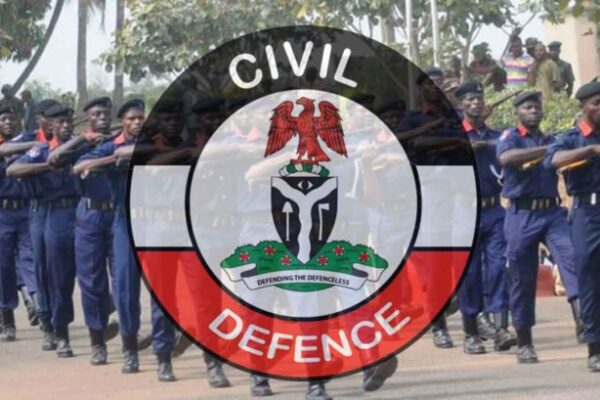APC, Tinubu, and INEC Oppose Live TV Coverage in Atiku’s Election Petition
The All Progressives Congress (APC), President-elect Senator Bola Tinubu, and the Independent National Electoral Commission (INEC) have voiced their opposition to an application requesting live television coverage of the proceedings in a petition filed by Alhaji Atiku Abubakar.Alhaji Abubakar, the candidate of the Peoples Democratic Party (PDP) in the February 25 presidential election, filed the petition challenging the declaration of APC’s Tinubu as the winner by INEC. The petition was submitted to the Presidential Election Petition Court (PEPC).The Vice-President-elect, Alhaji Kashim Shettima, another respondent in the case, also opposed the application for live television coverage of the proceedings.During the hearing at the PEPC, the respondents argued separately, stating that live telecasting of the proceedings could undermine the traditional solemnity of court proceedings.Counsel for INEC, Mr. Abubakar Mahmoud (SAN), opposed Abubakar’s motion, asserting that the court proceedings were already open to the public. He refuted the suggestion that the proceedings were not public unless televised, emphasizing that the courtroom was accessible to all within the limits of available space. Regarding Abubakar’s argument that there was no statutory legislation preventing live television coverage, Mahmoud differentiated between live streaming and televising live. He explained that live streaming was under the control of the court and that no live cameras were allowed in the courtroom. He further contended that live telecasts would trivialize the court proceedings, as the courtroom was not a place for theatrics. Mahmoud urged the court to reject the application, deeming it unnecessary and contrary to the purpose of administering justice.Representing Tinubu and Shettima, their counsel Mr. Wole Olanipekun (SAN) characterized the application as peculiar and urged the court not to allow Abubakar to transform it into a film house, stadium, crusade ground, or theater where live telecasts were permitted. Olanipekun questioned whether even an Area Court could grant such an order, considering it would be unenforceable and unmanageable. He also criticized Abubakar for focusing on the application for live television coverage instead of seeking an expeditious hearing of the petition. Olanipekun requested that the court not only dismiss the application but also impose a substantial cost on the petitioner.Arguing on behalf of the APC, Mr. Lateef Fagbemi (SAN) opposed the application, contending that the necessary facility and policy documents were not present to justify granting the request. Fagbemi argued that the application was baseless since there was no claim of inadequate coverage of the proceedings. He emphasized the distinction between a trial for the public and a trial in public, stating his support for the latter. Fagbemi pointed out the special gallery outside the courtroom provided for the public and expressed concern that granting the application would set a precedent for future governorship election petition tribunals. He concluded by urging the court to dismiss the application, as granting it would turn the court proceedings into something resembling the “Big Brother Naija” show.In support of the application, Mr. Chris Uche (SAN), counsel for Abubakar, argued that there was no legislative or statutory provision against it. Uche noted that the absence of previous live coverage did not preclude its possibility. He dismissed the respondents’ comparison to “Big Brother Naija” and cited the example of the Oputa Panel, which had live coverage and benefited the nation. Uche maintained that the live coverage would not prejudice anyone but would enhance transparency and accountability in the judicial process. He emphasized that the Nigerian public had a right to access information and observe the proceedings firsthand, especially in a high-profile case of national significance.Furthermore, Uche argued that live television coverage would prevent any misrepresentation or distortion of the proceedings, as viewers would be able to witness the arguments and presentations directly. He highlighted that other jurisdictions, including advanced democracies, allowed live television coverage of court proceedings without any negative consequences.In response to the respondents’ concerns about theatrics and the solemnity of court proceedings, Uche assured the court that his client sought only fair and unbiased coverage, devoid of sensationalism. He suggested that guidelines and regulations could be put in place to ensure responsible media coverage and maintain the dignity of the court.The court has reserved its ruling on the application, stating that it would carefully consider the arguments presented by both sides before reaching a decision.As the proceedings continue, the question of whether live television coverage should be permitted in Alhaji Atiku Abubakar’s petition remains unresolved. The court’s ruling on this matter will have implications not only for this particular case but also for future electoral disputes and the transparency of Nigeria’s judicial system as a whole.












